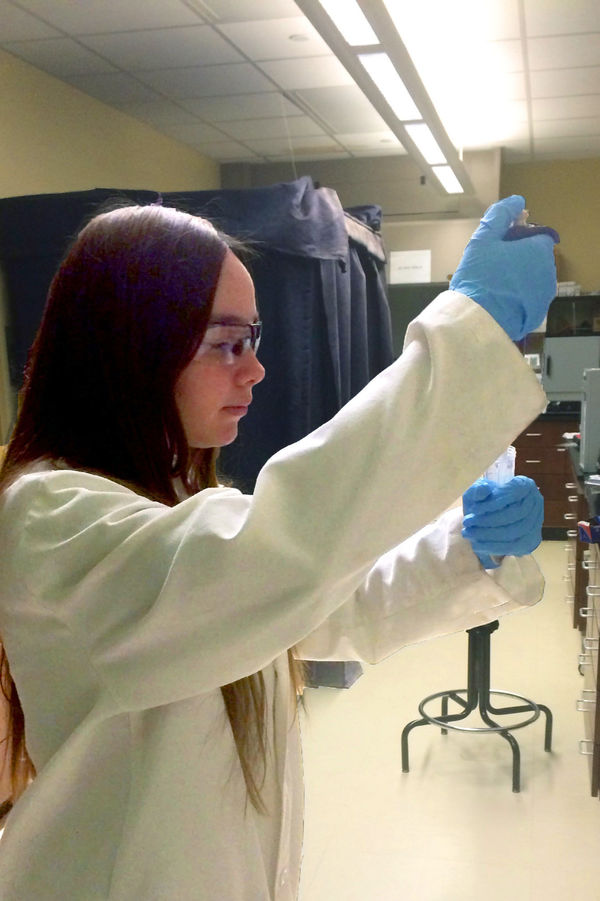The Power of Detecting Pathogens
Cancer research often involves collaboration between multiple disciplines and fields of study. Robin Lawler, a junior studying chemistry and biomolecular engineering, has been conducting multidisciplinary research since her freshman year. Robin works in Dr. Hsueh-Chia Chang’s lab, a lab that focuses on microfluidics and medical diagnostics. Dr. Chang’s lab couples microfluidic and nanofluidic devices with optic and electrokinetic technologies for the purpose of biosensing. The Chang lab uses expertise in Physics, Chemistry, Chemical Engineering and Electrical Engineering to make advances in cancer research.

Robin has been able to use her science background and experience to engage in important work in the Chang lab. During the first two years of her research, she assisted Dr. Slouka with the design, development and testing of a biochip for the detection of pathogens. Not only did Robin learn about pathogens that had important implications for cancer research, she also learned the basics of research and scientific methods. Robin has become more experienced by participating in cancer research during the summer. Last summer she worked in a Chemistry research lab at Princeton University, and was exposed to optics and chemical synthesis. Robin’s work at Princeton intrigued her and in the fall she was able to design an independent project that investigated optical biosensors. This project is important in improving the detection of DNA/RNA, which in turn results in efficient detection of pathogens central in cancer processes.
Although the majority of her time is spent on her independent project, Robin also assists in the experimental design of other projects. She is focused on developing her skills as a researcher, and receives mentoring from senior research personnel. Robin has been able to form important relationships by working with graduate students and another senior undergrad student, and with the help of this support she is making important gains in cancer research.
Robin’s research is not only important for her undergraduate experience, but also for her future plans. Robin says, “I want to attend graduate school and become a professor, and I enjoy every opportunity that prepares me for this future.” Further reflecting on her goals, Robin says, “I hope our lab can revolutionize the diagnostic industry with portable, affordable pathogen detection devices.”